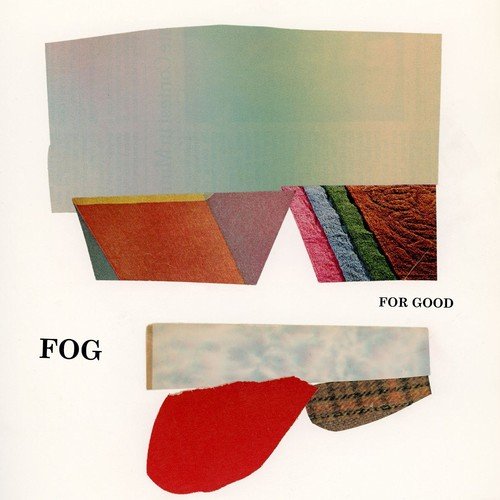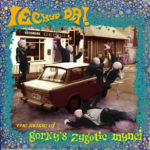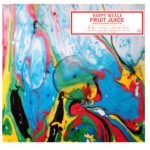When Fog released their last album Ditherer nearly a decade ago in 2007, the concept of indie was still very solid. More a collective with an ever-changing line-up than a conventional semblance of a band, the Minneapolis outfit exists primarily as the project of Andrew Broder, whose electronic-heavy take on singer-songwriter material makes more sense now than it ever has. Producers like James Blake and Jack Garratt blur the boundary between club sounds and introverted reflection, while acts like Moderat and Burial gain critical acclaim for heart-melting dance music. Julia Holter and Grimes are new models of indie darlings, while Radiohead’s recent comeback sees the cult favourites exploring synthetic textures: quite simply, laptops are in, guitars are out. With For Good, Fog make more sense in 2016 than ever before, without really having to try.
For Good is the indie-electronic album that captures the zeitgeist, and in many ways it does a good job of it too. There’s a lot of boxes checked: falsetto croons, sterile drums, harsh sounds, rumbling bass, the influence of hip-hop and dubstep. But For Good is no Jamie XX-style approximation and pastiche – because, underneath all the experimental production and obtuse sounds, it’s an album of piano ballads, the bread-and-butter stock of torch song confessionals.
Sometimes For Good doesn’t even try to hide the fact. The seven-minute closer ‘Father Popcorn’ is slight to the point of silence, with only Broder’s gentle whisper and the lightest of chords, drifting into the ether with a resignation that feels still. It’s the most conventional track on For Good, and the most affecting. But even at the album’s weirdest moments, there’s always a sense that these songs were organically written: the production dressing up otherwise plain song-writing, anchored in piano chords and the song structures of pop and rock.
The problem is that For Good is just too much of an indie record to work by its own intentions. The most striking weakness is Broder’s voice: an unskilled singer with a reedy tone, his vocals simply can’t convey the anguish and drama needed. When he leans delicately, the results feel tender and intimate, but too much of this album feels affectless.
But that isn’t the biggest problem: that would be the way the experimental elements are used. The moments that are genuinely experimental feel accidental, while the majority feels simultaneously unsurprising and jarring. The beats veer towards staid and there’s no jaw-dropping moments where the sonic performance carries any emotional heft: it feels like cosmetic adornment on an otherwise unremarkable attempt at introspective indie.
For Good is a decent-enough album, and there’s enough to recommend it to fans of this sort of thing. But compared to an act like Majical Cloudz, who mine a similar furrow of ugly vocals, synth atmospheres and obtrusive textures, it’s hard to imagine this feeling an essential listen. The timing may be right, but based on this, Broder’s career isn’t any more likely to explode than it was a decade ago.




